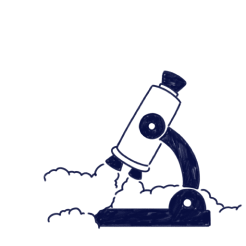According to the U.S. Food and Drug Administration (FDA), data integrity is the completeness, consistency, and accuracy of data. The agency places a significant emphasis on data integrity in regulated industries such as pharmaceuticals, biotechnology...
An eQMS is a digitalized Quality Management System where you can create, store, retrieve, and archive all of your company’s quality-related documents. In the context of a life sciences company, an eQMS also automates compliance requirements under 21 ...
If you’ve been on the lookout for a go-to resource offering valuable tips for technical writing, your search is finally over. We’re here to simplify complexity.
Quality can help organizations drive compliance and growth, as well as reduce costs, by shifting from being an operational compliance issue to a strategic business initiative.
Life science industries have their language and it consists of many concepts, terms, and abbreviations that are commonly mixed up. When you see them together it is even harder to grasp the nuances between concepts. Today we’ll give you a long list of...
Root Cause Analysis (RCA) is a systematic process used to identify the underlying cause or causes that lead to a problem or incident, with the goal of preventing its recurrence in the future. It is a systematic approach employed in various industries...
In the European Union, life sciences companies that export to the United States must comply with 21 CFR Part 11, the FDA regulation that oversees electronic records and electronic signatures. As digital systems continue to replace traditional paper-b...
2025 is almost over. Oh, how time flies! As we are entering the last quarter of the year, there are still plenty of conferences and trade shows for you to attend. These events are a great way to stay on top of today’s rapid and sometimes overwhelming...
Managing your documents doesn’t have to feel like a never-ending nightmare. Good Documentation Practices, also known as GDP or GDocP, are essential to streamlining your document workflow, enhancing employee efficiency, and ensuring compliance with re...
Did you know that 80% of Life Sciences companies are lagging behind in digitalizing their core business? For some, paper documentation is still piling up. For others, their new digital solutions are not yet fully utilized.
When searching for an eQMS (Electronic Quality Management System or Enterprise Quality Management System), it is crucial to prioritize platforms that are purpose-built for meeting the Quality Management Systems (QMS) requirements in the life sciences...
Quality professionals in the life sciences industry are dedicated to achieving the highest standards of quality, safety, and efficacy in all products, while also improving manufacturability. Medicines must meet the intended use. To accomplish this, t...
